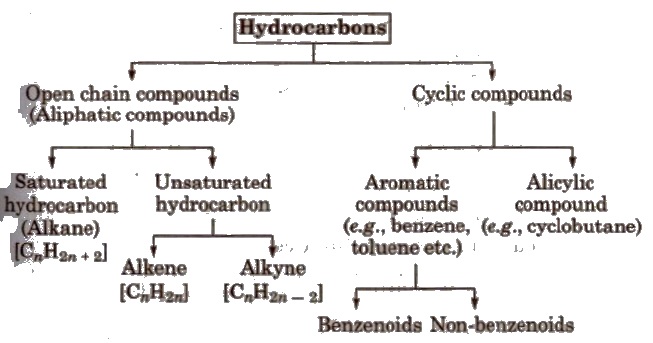Latest Posts
Class 11 Chemistry Chapter Hydrocarbons Notes
![Class 11 Chemistry Chapter Hydrocarbons Notes]() Reviewed by Jaitus
on
March 27, 2020
Rating: 5
Reviewed by Jaitus
on
March 27, 2020
Rating: 5
Class 11 Chemistry Chapter Organic chemistry: Some Basic Principales and Techniques Notes

Class 11 Chemistry Chapter Organic chemistry: Some Basic Principales and Techniques Notes
![Class 11 Chemistry Chapter Organic chemistry: Some Basic Principales and Techniques Notes]() Reviewed by Jaitus
on
March 27, 2020
Rating: 5
Reviewed by Jaitus
on
March 27, 2020
Rating: 5
Class 11 Chemistry Chapter P-Block elements Notes

Class 11 Chemistry Chapter P-Block elements Notes
![Class 11 Chemistry Chapter P-Block elements Notes]() Reviewed by Jaitus
on
March 26, 2020
Rating: 5
Reviewed by Jaitus
on
March 26, 2020
Rating: 5
Class 11 Chemistry Chapter S-Block elements Notes

As the s-orbital can accommodate only two electrons, two groups (1 and 2) belong to the s-block,
Class 11 Chemistry Chapter S-Block elements Notes
![Class 11 Chemistry Chapter S-Block elements Notes]() Reviewed by Jaitus
on
March 26, 2020
Rating: 5
Reviewed by Jaitus
on
March 26, 2020
Rating: 5
Class 11 Chemistry Chapter Hydrogen Notes

Class 11 Chemistry Chapter Hydrogen Notes
![Class 11 Chemistry Chapter Hydrogen Notes]() Reviewed by Jaitus
on
March 26, 2020
Rating: 5
Reviewed by Jaitus
on
March 26, 2020
Rating: 5
Class 11 Chemistry Chapter Redox Reactions Notes

Class 11 Chemistry Chapter Redox Reactions Notes
![Class 11 Chemistry Chapter Redox Reactions Notes]() Reviewed by Jaitus
on
March 26, 2020
Rating: 5
Reviewed by Jaitus
on
March 26, 2020
Rating: 5
Class 11 Chemistry Chapter Equilibrium Notes

Physical processes involve such changes, which only affects the physical properties of the substance undergoing changes but have no effect on the chemical composition and properties.
Chemical processes involve changes in chemical composition and properties. Whenever a chemical change occurs, we can say that a chemical reaction has taken place.
Class 11 Chemistry Chapter Equilibrium Notes
![Class 11 Chemistry Chapter Equilibrium Notes]() Reviewed by Jaitus
on
March 26, 2020
Rating: 5
Reviewed by Jaitus
on
March 26, 2020
Rating: 5
Class 11 Chemistry Chapter Thermodynamics Notes
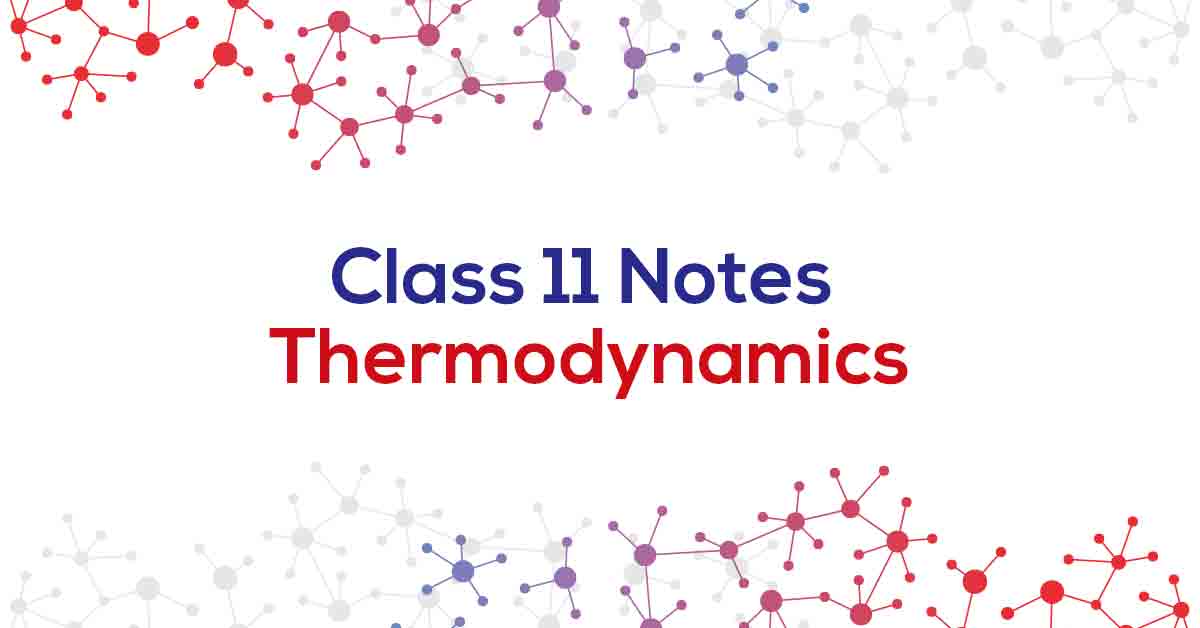
Class 11 Chemistry Chapter Thermodynamics Notes
![Class 11 Chemistry Chapter Thermodynamics Notes]() Reviewed by Jaitus
on
March 26, 2020
Rating: 5
Reviewed by Jaitus
on
March 26, 2020
Rating: 5
Class 11 Chemistry Chapter States of matter Notes

conditions.
Class 11 Chemistry Chapter States of matter Notes
![Class 11 Chemistry Chapter States of matter Notes]() Reviewed by Jaitus
on
March 26, 2020
Rating: 5
Reviewed by Jaitus
on
March 26, 2020
Rating: 5
Class 11 Chemistry Chapter Chemical bonding and molecular structure Notes

It is defined as the attractive forces which hold the various chemical constituents (atoms, ions, etc.) together in different chemical species.
Bond forms to get the stability. with a release of energy.
Class 11 Chemistry Chapter Chemical bonding and molecular structure Notes
![Class 11 Chemistry Chapter Chemical bonding and molecular structure Notes]() Reviewed by Jaitus
on
March 26, 2020
Rating: 5
Reviewed by Jaitus
on
March 26, 2020
Rating: 5
Class 11 Chemistry Chapter Classification of elements Notes

With the discovery of a large number of elements, it became difficult to study the elements individually, so classification of elements was done to make the study easier.
Earlier Attempts to Classify Elements
Many attempts were made to classify the known elements from time to time. The earlier attempts are as follows:
Prout’s Hypothesis (1815)
According to this theory, hydrogen atom was considered as the fundamental unit from which all other atoms were made. It is also known as unitary theory.
Class 11 Chemistry Chapter Classification of elements Notes
![Class 11 Chemistry Chapter Classification of elements Notes]() Reviewed by Jaitus
on
March 26, 2020
Rating: 5
Reviewed by Jaitus
on
March 26, 2020
Rating: 5
Class 11 Chemistry Chapter Structure of Atom Notes

John Dalton proposed (in 1808) that atom is the smallest indivisible particle of matter. Atomic radii are of the order of 10-8cm. It contain three subatomic particles namely electrons, protons and neutrons,
Class 11 Chemistry Chapter Structure of Atom Notes
![Class 11 Chemistry Chapter Structure of Atom Notes]() Reviewed by Jaitus
on
March 26, 2020
Rating: 5
Reviewed by Jaitus
on
March 26, 2020
Rating: 5
Class 11 Chemistry Chapter Some Basic Concepts of Chemistry Notes

It is the branch of science which deals with the composition, structure and properties of matter.
Antoine Laurent Lavoisier is called the father of chemistry.
Class 11 Chemistry Chapter Some Basic Concepts of Chemistry Notes
![Class 11 Chemistry Chapter Some Basic Concepts of Chemistry Notes]() Reviewed by Jaitus
on
March 26, 2020
Rating: 5
Reviewed by Jaitus
on
March 26, 2020
Rating: 5
Class 11 Physics Chapter Waves Notes

Wave
A wave is a vibratory disturbance in a medium which carries energy from one point to another point without any actual movement of the medium. There are three types of waves
- Mechanical Waves Those waves which require a material medium for their propagation, are called mechanical waves, e.g., sound waves, water waves etc.
- Electromagnetic Waves Those waves which do not require a material medium for their propagation, are called electromagnetic waves, e.g., light waves, radio waves etc.
- Matter Waves These waves are commonly used in modern technology but they are unfamiliar to us. Thses waves are associated with electrons, protons and other fundamental particles.
Class 11 Physics Chapter Waves Notes
![Class 11 Physics Chapter Waves Notes]() Reviewed by Jaitus
on
March 24, 2020
Rating: 5
Reviewed by Jaitus
on
March 24, 2020
Rating: 5
Class 11 Chapter Oscillations Notes

A motion which repeats itself identically after a fixed interval of time is called periodic motion. e.g., orbital motion of the earth around the sun, motion of arms of a clock, motion of a simple pendulum etc.
Oscillatory Motion
A periodic motion taking place to and fro or back and forth about a fixed point, is called oscillatory motion, e.g., motion of a simple pendulum, motion of a loaded spring etc.
Note Every oscillatory motion is periodic motion but every periodic motion is not oscillatory motion.
Harmonic Oscillation
The oscillation which can be expressed in terms of single harmonic function, i.e., sine or cosine function, is called harmonic oscillation.
Simple Harmonic Motion
A harmonic oscillation of constant amplitude and of single frequency under a restoring force whose magnitude is proportional to the displacement and always acts towards mean Position is called Simple Harmonic Motion (SHM).
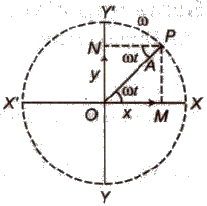
A simple harmonic oscillation can be expressed as
y = a sin ωt
or y = a cos ωt
Where a = amplitude of oscillation.
Class 11 Chapter Oscillations Notes
![Class 11 Chapter Oscillations Notes]() Reviewed by Jaitus
on
March 24, 2020
Rating: 5
Reviewed by Jaitus
on
March 24, 2020
Rating: 5
Class 11 Chapter Kinetic Energy Notes

- Every gas consists of extremely small particles known as molecules. The molecules of a given gas are all identical but are different from those of another gas.
- The molecules of a gas are identical spherical, rigid and perfectly elastic point masses.
- Their molecular size is negligible in comparison to intermolecular distance (10-9m).
- The speed of gas molecules lies between zero and infinity (very high speed).
- The distance covered by the molecules between two successive collisions is known as free path and mean of all free path is known as mean free path.
- The number of collision per unit volume in a gas remains constant.
- No attractive or repulsive force acts between gas molecules.
- Gravitational to extremely attraction among the molecules is ineffective due small masses and very high speed of molecules.
Class 11 Chapter Kinetic Energy Notes
![Class 11 Chapter Kinetic Energy Notes]() Reviewed by Jaitus
on
March 24, 2020
Rating: 5
Reviewed by Jaitus
on
March 24, 2020
Rating: 5
Class 11 Physics Chapter Thermodynamics Notes

A thermodynamical system is said to be in thermal equilibrium when macroscopic variables (like pressure, volume, temperature, mass, composition etc) that characterise the system do not change with time.
Class 11 Physics Chapter Thermodynamics Notes
![Class 11 Physics Chapter Thermodynamics Notes]() Reviewed by Jaitus
on
March 24, 2020
Rating: 5
Reviewed by Jaitus
on
March 24, 2020
Rating: 5
Class 11 Physics Chapter Thermal properties of matter Notes
Thermal Properties of Matter Class 11 Notes Physics Chapter 11

• Heat is the form of energy transferred between two (or more) systems or a system and its surroundings by virtue of temperature difference. The SI unit of heat energy transferred is expressed in joule (J).
In CGS system, unit of heat is calorie and kilocalorie (kcal).
1 cal = 4.186 J and 1 kcal = 1000 cal = 4186 J.
• Temperature of a substance is a physical quantity which measures the degree of hotness or coldness of the substance. The SI unit of temperature is kelvin (K) and °C is a commonly used unit of temperature.
• A branch of science which deals with the measurement of temperature of a substance is known as thermometry. A device used to measure the temperature of a body is called thermometer.
• A thermometer calibrated for a temperature scale is used to measure the value of given temperature on that scale. For the measurement of temperature, two fixed reference points are selected. The two convenient fixed reference points are the ice point and the steam point of water at standard pressure, which are known as freezing point and boiling point of water at standard pressure.
• The two familiar temperature scales are the Fahrenheit temperature scale and the Celsius temperature scale. The ice and steam point have values 32°F and 212°F respectively, on the Fahrenheit scale and 0°C and 100°C on the Celsius scale. On the Fahrenheit scale, there are 180 equal intervals between two reference points, and on the Celsius scale, there are 100.
• If tc and tF are temperature values of a body on Celsius temperature scale and Fahrenheit temperature scale respectively, then the relationship between Fahrenheit and Celsius temperature is given by

In CGS system, unit of heat is calorie and kilocalorie (kcal).
1 cal = 4.186 J and 1 kcal = 1000 cal = 4186 J.
• Temperature of a substance is a physical quantity which measures the degree of hotness or coldness of the substance. The SI unit of temperature is kelvin (K) and °C is a commonly used unit of temperature.
• A branch of science which deals with the measurement of temperature of a substance is known as thermometry. A device used to measure the temperature of a body is called thermometer.
• A thermometer calibrated for a temperature scale is used to measure the value of given temperature on that scale. For the measurement of temperature, two fixed reference points are selected. The two convenient fixed reference points are the ice point and the steam point of water at standard pressure, which are known as freezing point and boiling point of water at standard pressure.
• The two familiar temperature scales are the Fahrenheit temperature scale and the Celsius temperature scale. The ice and steam point have values 32°F and 212°F respectively, on the Fahrenheit scale and 0°C and 100°C on the Celsius scale. On the Fahrenheit scale, there are 180 equal intervals between two reference points, and on the Celsius scale, there are 100.
• If tc and tF are temperature values of a body on Celsius temperature scale and Fahrenheit temperature scale respectively, then the relationship between Fahrenheit and Celsius temperature is given by

Class 11 Physics Chapter Thermal properties of matter Notes
![Class 11 Physics Chapter Thermal properties of matter Notes]() Reviewed by Jaitus
on
March 24, 2020
Rating: 5
Reviewed by Jaitus
on
March 24, 2020
Rating: 5
Class 11 Physics Chapter Mechanical properties of solids Notes
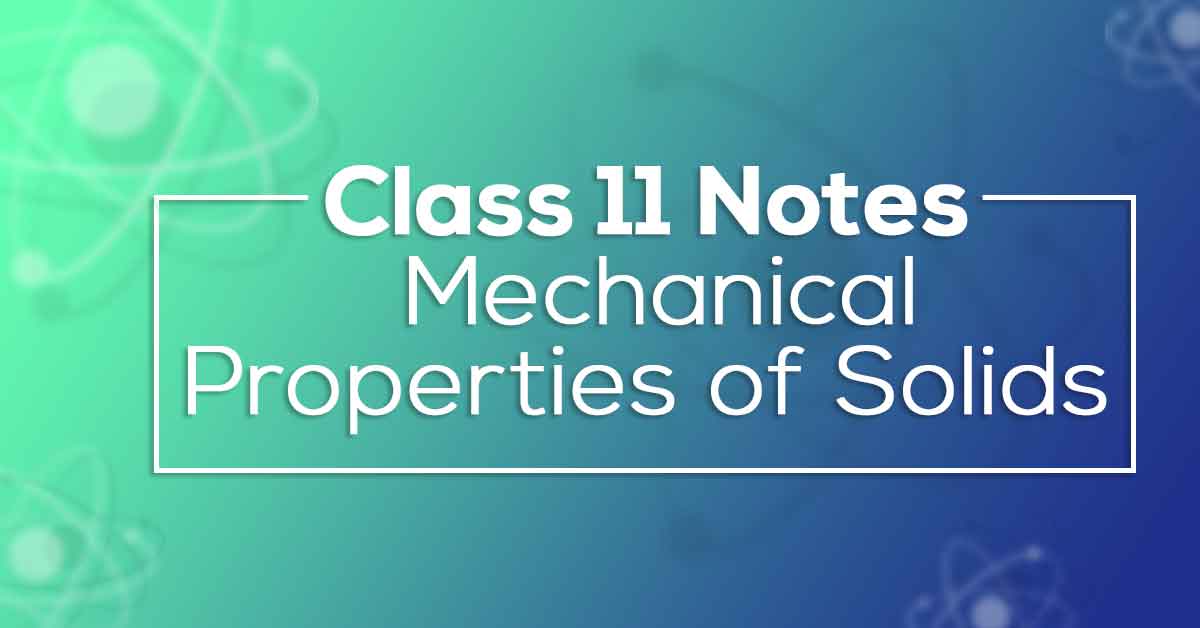
NCERT Notes For Physics Class 11
Chapter 9 :- Mechanical Properties Of Solids
Deforming Force
A force which produces a change in configuration of the object on applying it, is called a deforming force.
Elasticity
Class 11 Physics Chapter Mechanical properties of solids Notes
![Class 11 Physics Chapter Mechanical properties of solids Notes]() Reviewed by Jaitus
on
March 24, 2020
Rating: 5
Reviewed by Jaitus
on
March 24, 2020
Rating: 5
Class 11 Physics Chapter Gravitation Notes

Gravitation is one of the four classes of interactions found in nature.
These are
(i) the gravitational force
(ii) the electromagnetic force
(iii) the strong nuclear force (also called the hadronic force).
(iv) the weak nuclear forces.
Class 11 Physics Chapter Gravitation Notes
![Class 11 Physics Chapter Gravitation Notes]() Reviewed by Jaitus
on
March 24, 2020
Rating: 5
Reviewed by Jaitus
on
March 24, 2020
Rating: 5
Class 11 Physics System of particles and Rotational Motion Notes

Centre of Mass
Centre of mass of a system is the point that behaves as whole mass of the system is concentrated at it and all external forces are acting on it.
For rigid bodies, centre of mass is independent of the state of the body i.e., whether it is in rest or in accelerated motion centre of mass will rermain same.
Class 11 Physics System of particles and Rotational Motion Notes
![Class 11 Physics System of particles and Rotational Motion Notes]() Reviewed by Jaitus
on
March 21, 2020
Rating: 5
Reviewed by Jaitus
on
March 21, 2020
Rating: 5
Class 11 Physics Work, Energy and Power Notes
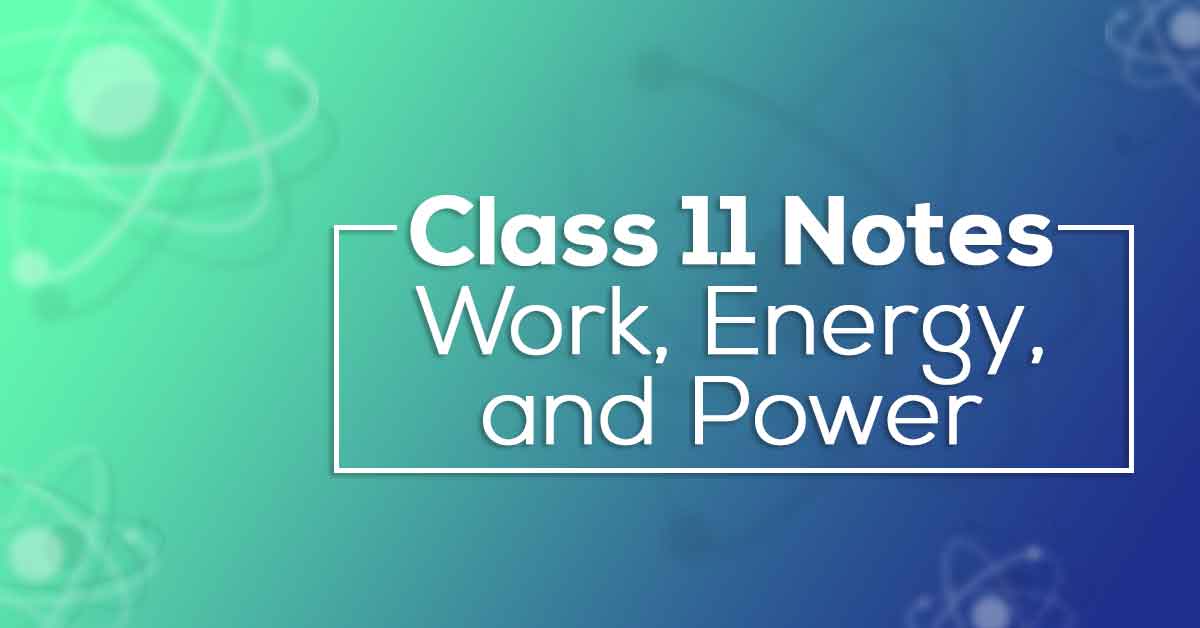
Work
When a force acts on an object and the object actually moves in the direction of force, then the work is said to be done by the force.
Work done by the force is equal to the product of the force and the displacement of the object in the direction of force.
If under a constant force F the object displaced through a distance s, then work done by the force
Class 11 Physics Work, Energy and Power Notes
![Class 11 Physics Work, Energy and Power Notes]() Reviewed by Jaitus
on
March 21, 2020
Rating: 5
Reviewed by Jaitus
on
March 21, 2020
Rating: 5
Class 11 Physics Law of Motion Notes

The property of an object by virtue of which it cannot change its state of rest or of uniform motion along a straight line its own, is called inertia.
Inertia is a measure of mass of a body. Greater the mass of a body greater will be its inertia or vice-versa.
Inertia is of three types:
(i) Inertia of Rest When a bus or train starts to move suddenly, the passengers sitting in it falls backward due to inertia of rest.
(ii) Inertia of Motion When a moving bus or train stops suddenly, the passengers sitting in it jerks in forward direction due to inertia of motion.
Class 11 Physics Law of Motion Notes
![Class 11 Physics Law of Motion Notes]() Reviewed by Jaitus
on
March 21, 2020
Rating: 5
Reviewed by Jaitus
on
March 21, 2020
Rating: 5
Class 11 Physics Motion in a plane Notes

When any object is thrown from horizontal at an angle θ except 90°, then the path followed by it is called trajectory, the object is called projectile and its motion is called projectile motion.
Class 11 Physics Motion in a plane Notes
![Class 11 Physics Motion in a plane Notes]() Reviewed by Jaitus
on
March 21, 2020
Rating: 5
Reviewed by Jaitus
on
March 21, 2020
Rating: 5
Class 11 Physics Motion in a straight line Notes
If an object changes its position with respect to its surroundings with time, then it is called in motion.
Rest
If an object does not change its position with respect to its surroundings with time, then it is called at rest.
[Rest and motion are relative states. It means an object which is at rest in one frame of reference can be in motion in another frame of reference at the same time.]
Class 11 Physics Motion in a straight line Notes
 Reviewed by Jaitus
on
March 21, 2020
Rating: 5
Reviewed by Jaitus
on
March 21, 2020
Rating: 5
 Reviewed by Jaitus
on
March 21, 2020
Rating: 5
Reviewed by Jaitus
on
March 21, 2020
Rating: 5
Class 11 Physics Units and Measurements Notes
Units and Measurement Class 11 Notes Physics Chapter 2
Measurement
The process of measurement is basically a comparison process. To measure a physical quantity, we have to find out how many times a standard amount of that physical quantity is present in the quantity being measured. The number thus obtained is known as the magnitude and the standard chosen is called the unit of the physical quantity.
Unit
The unit of a physical quantity is an arbitrarily chosen standard which is widely accepted by the society and in terms of which other quantities of similar nature may be measured.
Standard
The actual physical embodiment of the unit of a physical quantity is known as a standard of that physical quantity.
• To express any measurement made we need the numerical value (n) and the unit (μ). Measurement of physical quantity = Numerical value x Unit
For example: Length of a rod = 8 m
where 8 is numerical value and m (metre) is unit of length.
Fundamental Physical Quantity/Units
It is an elementary physical quantity, which does not require any other physical quantity to express it. It means it cannot be resolved further in terms of any other physical quantity. It is also known as basic physical quantity.
The units of fundamental physical quantities are called fundamental units.
For example, in M. K. S. system, Mass, Length and Time expressed in kilogram, metre and second respectively are fundamental units.
Derived Physical Quantity/Units
All those physical quantities, which can be derived from the combination of two or more fundamental quantities or can be expressed in terms of basic physical quantities, are called derived physical quantities.
The units of all other physical quantities, which car. be obtained from fundamental units, are called derived units. For example, units of velocity, density and force are m/s, kg/m3, kg m/s2 respectively and they are examples of derived units.
Systems of Units
Earlier three different units systems were used in different countries. These were CGS, FPS and MKS systems. Now-a-days internationally SI system of units is followed. In SI unit system, seven quantities are taken as the base quantities.
(i) CGS System. Centimetre, Gram and Second are used to express length, mass and time respectively.
(ii) FPS System. Foot, pound and second are used to express length, mass and time respectively.
(iii) MKS System. Length is expressed in metre, mass is expressed in kilogram and time is expressed in second. Metre, kilogram and second are used to express length, mass and time respectively.
(iv) SI Units. Length, mass, time, electric current, thermodynamic temperature, Amount of substance and luminous intensity are expressed in metre, kilogram, second, ampere, kelvin, mole and candela respectively.
Definitions of Fundamental Units

Supplementary Units
Besides the above mentioned seven units,there are two supplementary base units. these are (i) radian (rad) for angle, and (ii) steradian (sr) for solid angle.

Advantages of SI Unit System
SI Unit System has following advantages over the other Besides the above mentioned seven units, there are two supplementary base units. These are systems of units:

(i) It is internationally accepted,
(ii) It is a rational unit system,
(iii) It is a coherent unit system,
(iv) It is a metric system,
(v) It is closely related to CGS and MKS systems of units,
(vi) Uses decimal system, hence is more user friendly.
Other Important Units of Length
For measuring large distances e.g., distances of planets and stars etc., some bigger units of length such as ‘astronomical unit’, ‘light year’, parsec’ etc. are used.
• The average separation between the Earth and the sun is called one astronomical unit.
1 AU = 1.496 x 1011 m.
• The distance travelled by light in vacuum in one year is called light year.
1 light year = 9.46 x 1015 m.
• The distance at which an arc of length of one astronomical unit subtends an angle of one second at a point is called parsec.
1 parsec = 3.08 x 1016 m
• Size of a tiny nucleus = 1 fermi = If = 10-15m
• Size of a tiny atom = 1 angstrom = 1A = 10-10 m
SI Unit System has following advantages over the other Besides the above mentioned seven units, there are two supplementary base units. These are systems of units:

(i) It is internationally accepted,
(ii) It is a rational unit system,
(iii) It is a coherent unit system,
(iv) It is a metric system,
(v) It is closely related to CGS and MKS systems of units,
(vi) Uses decimal system, hence is more user friendly.
Other Important Units of Length
For measuring large distances e.g., distances of planets and stars etc., some bigger units of length such as ‘astronomical unit’, ‘light year’, parsec’ etc. are used.
• The average separation between the Earth and the sun is called one astronomical unit.
1 AU = 1.496 x 1011 m.
• The distance travelled by light in vacuum in one year is called light year.
1 light year = 9.46 x 1015 m.
• The distance at which an arc of length of one astronomical unit subtends an angle of one second at a point is called parsec.
1 parsec = 3.08 x 1016 m
• Size of a tiny nucleus = 1 fermi = If = 10-15m
• Size of a tiny atom = 1 angstrom = 1A = 10-10 m
Parallax Method:
This method is used to measure the distance of planets and stars from earth.
Parallax. Hold a pen in front of your eyes and look at the pen by closing the right eye and ‘ then the left eye. What do you observe? The position of the pen changes with respect to the background. This relative shift in the position of the pen (object) w.r.t. background is called parallax.
If a distant object e.g., a planet or a star subtends parallax angle 0 on an arc of radius b (known as basis) on Earth, then distance of that distant object from the basis is given by

• To estimate size of atoms we can use electron microscope and tunneling microscopy technique. Rutherford’s a-particle scattering experiment enables us to estimate size of nuclei of different elements.
• Pendulum clocks, mechanical watches (in which vibrations of a balance wheel are used) and quartz watches are commonly used to measure time. Cesium atomic clocks can be used to measure time with an accuracy of 1 part in 1013 (or to a maximum discrepancy of 3 ps in a year).
• The SI unit of mass is kilogram. While dealing with atoms/ molecules and subatomic particles we define a unit known as “unified atomic mass unit” (1 u), where 1 u = 1.66 x 10-27 kg.

Estimation of Molecular Size of Oleic Acid
For this 1 cm3 of oleic acid is dissolved in alcohol to make a solution of 20 cm3. Then 1 cm3 of this solution is taken and diluted to 20 cm3, using alcohol. So, the concentration of the solution is as follows:

After that some lycopodium powder is lightly sprinkled on the surface of water in a large trough and one drop of this solution is put in water. The oleic acid drop spreads into a thin, large and roughly circular film of molecular thickness on water surface. Then, the diameter of the thin film is quickly measured to get its area A. Suppose n drops were put in the water. Initially, the approximate volume of each drop is determined (V cm3).
Volume of n drops of solution = nV cm3
Amount of oleic acid in this solution

The solution of oleic acid spreads very fast on the surface of water and forms a very thin layer of thickness t. If this spreads to form a film of area A cm2, then thickness of the film

If we assume that the film has mono-molecular thickness, this becomes the size or diameter of a molecule of oleic acid. The value of this thickness comes out to be of the order of 10-9 m.
Dimensions
The dimensions of a physical quantity are the powers to which the fundamental units of mass, length and time must be raised to represent the given physical quantity.
Dimensional Formula
The dimensional formula of a physical quantity is an expression telling us how and which of the fundamental quantities enter into the unit of that quantity.
It is customary to express the fundamental quantities by a capital letter, e.g., length (L), mass (AT), time (T), electric current (I), temperature (K) and luminous intensity (C). We write appropriate powers of these capital letters within square brackets to get the dimensional formula of any given physical quantity.
Applications of Dimensions
The concept of dimensions and dimensional formulae are put to the following uses:
(i) Checking the results obtained
(ii) Conversion from one system of units to another
(iii) Deriving relationships between physical quantities
(iv) Scaling and studying of models.
The underlying principle for these uses is the principle of homogeneity of dimensions. According to this principle, the ‘net’ dimensions of the various physical quantities on both sides of a permissible physical relation must be the same; also only dimensionally similar quantities can be added to or subtracted from each other.

Limitations of Dimensional Analysis
The method of dimensions has the following limitations:
The method of dimensions has the following limitations:
(i) by this method the value of dimensionless constant cannot be calculated.
(ii) by this method the equation containing trigonometric, exponential and logarithmic terms cannot be analyzed.
(iii) if a physical quantity in mechanics depends on more than three factors, then relation among them cannot be established because we can have only three equations by equalizing the powers of M, L and T.
(iv) it doesn’t tell whether the quantity is vector or scalar.
Significant Figures
The significant figures are a measure of accuracy of a particular measurement of a physical quantity.
Significant figures in a measurement are those digits in a physical quantity that are known reliably plus the first digit which is uncertain.
The Rules for Determining the Number of Significant Figures
(i) All non-zero digits are significant.
(ii) All zeroes between non-zero digits are significant.
(iii) All zeroes to the right of the last non-zero digit are not significant in numbers without decimal point.
(iv) All zeroes to the right of a decimal point and to the left of a non-zero digit are not significant.
(v) All zeroes to the right of a decimal point and to the right of a non-zero digit are significant.
(vi) In addition and subtraction, we should retain the least decimal place among the values operated, in the result.
(vii) In multiplication and division, we should express the result with the least number of significant figures as associated with the least precise number in operation.
(viii) If scientific notation is not used:
(a) For a number greater than 1, without any decimal, the trailing zeroes are not significant.
(b) For a number with a decimal, the trailing zeros are significant.
Error
The measured value of the physical quantity is usually different from its true value. The result of every measurement by any measuring instrument is an approximate number, which contains some uncertainty. This uncertainty is called error. Every calculated quantity, which is based on measured values, also has an error.
Causes of Errors in Measurement
Following are the causes of errors in measurement:

Least Count Error. The least count error is the error associated with the resolution of the instrument. Least count may not be sufficiently small. The maximum possible error is equal to the least count.
Instrumental Error. This is due to faulty calibration or change in conditions (e.g., thermal expansion of a measuring scale). An instrument may also have a zero error. A correction has to be applied.
Random Error. This is also called chance error. It makes to give different results for same measurements taken repeatedly. These errors are assumed to follow the Gaussian law of normal distribution.
Accidental Error. This error gives too high or too low results. Measurements involving this error are not included in calculations.
Systematic Error. The systematic errors are those errors that tend to be in one direction, either positive or negative. Errors due to air buoyancy in weighing and radiation loss in calorimetry are systematic errors. They can be eliminated by manipulation. Some of the sources of systematic errors are:
(i) intrumental error
(ii) imperfection in experimental technique or procedure
(iii) personal errors
Absolute Error, Relative Error and Percentage Error


Combination of Errors


IMPORTANT TABLES






STRIKE NTSE:






STRIKE NTSE:
Class 11 Physics Units and Measurements Notes
 Reviewed by Jaitus
on
March 20, 2020
Rating: 5
Reviewed by Jaitus
on
March 20, 2020
Rating: 5
 Reviewed by Jaitus
on
March 20, 2020
Rating: 5
Reviewed by Jaitus
on
March 20, 2020
Rating: 5
Subscribe to:
Comments
(
Atom
)


